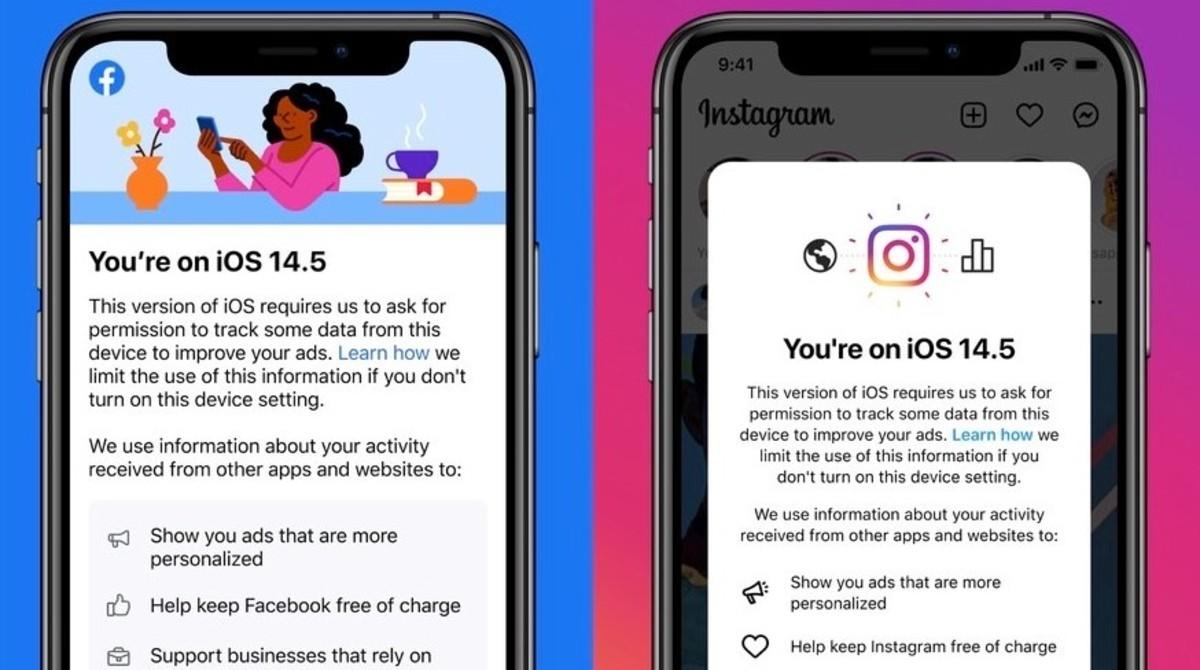“They collect thousands of pieces of information about you to create a digital profile that they sell to others…This has been happening without your knowledge or permission. Your information is for sale. You have become the product.”
Above was taken from Apple’s new video promoting the introduction of an App Transparency Tracking (ATT) feature and is just one of the many thinly-veiled swipes at Facebook’s business model and ad tracking.
Featured in the newly released iOS 14.5 update, ATT will be a crippling blow for Facebook. User data – and the advertising it can generate – is what makes Facebook so profitable. This update could deal a severe blow to its business model.
Since the announcement of the update, Facebooks has hit back with numerous challenges and threats, with even the suggestion that they will start charging for social networking apps if Apple users choose to block ad tracking.
Watch the new Apple ATT promotion video below:
Much like other social platforms, Facebook has been tracking users online for years without ever asking for consent.
More recently, in what many saw as a barely-disguised reference to Facebook, the current chief executive of Apple, Tim Cook, said: “If a business is built on misleading users, on data exploitation, on choices that are no choices at all, it does not deserve our praise. It deserves reform.”
The Apple video explains how apps are collecting data such as your age, location, health information, spending habits and warns that this data can be used to “map your runs, tag your photos, or track your location.”
It is also clear that Apple references Facebook and other apps like it, saying “some apps have trackers in them that are taking more data than they need, sharing it with third parties like advertisers and data brokers.”
What exactly is ATT?
App Tracking Transparency (ATT) is a new privacy protection framework for Apple device owners.
On the approach since the initial announcement in June 2020, ATT is a feature that requires apps to attain your permission before tracking you across iPhone apps and services. In reality, this means that after upgrading to iOS 14.5, you will see a pop-up box that reads “Allow X to track your activity across other companies’ apps and websites?” You can then choose “Ask App not to Track” or “Allow”.
ATT is meant to make the process of privacy protection more accessible to consumers. APIs, such as Facebook, have always had a specification detailing what data is accessed between two applications. But consumers have never had easy access to those technical details, as they are usually buried deep within privacy policies.
Providing a notification like ATT will let Apple device owners learn who has their data, allowing comparison on what apps are best protecting their privacy.
Surveys suggest, and Facebook acknowledges, that up to 80% will say no to tracking data.
How did Facebook respond?
Facebook has been very vocal in its opposition to ATT since the feature was first announced last year. The social network even took out full-page newspaper ads to criticise Apple’s privacy move, claiming the update would hurt small businesses the most. These adverts also featured small businesses talking about how they only survived the pandemic because of targeted ads.
Facebook argues that sharing data with advertisers is key to giving users “better experiences”. It also says that Apple is being hypocritical, as it will force businesses to turn to subscriptions and other in-app payments for revenue, from which Apple takes a cut.
In its blog addressing the change, Facebook has appeared to accept the changes enforced by Apple and has promised “new advertiser experiences and measurement protocols”. It has also admitted that the ways in which digital advertisers collect and use information about users will need to “evolve” to a new strategy that relies on “less data”.
What does this mean for users?
In reality, ATT is good for you and privacy on your iPhone because of the new transparency it provides. Even if you choose to allow tracking, at least you have done so with the full knowledge that it is happening.
As mentioned, Facebook has threatened to charge Apple users who opt out of data tracking to use any of their apps, this will include their biggest contenders Facebook and Instagram.
In fact, Facebook has already implemented these actions by delivering its own message (shown below) before showing Apple’s prompt, where it’ll suggest that it might start charging for apps if people block iPhone tracking.

Facebook’s privacy prompt informs users about the new iOS requirements, suggesting that it would be beneficial for users to keep allowing Facebook to track them. The prompts will likely appear in both the Facebook and Instagram apps before Facebook displays the mandatory ATT prompt.
Facebook has already confirmed that it will abide by Apple’s new privacy rules, despite its previous protests.
How will this affect advertisers?
As ATT takes effect on all apps, it will shut off a stream of data that app developers, measurement companies, and advertisers have used to link user behaviour across apps and mobile websites. This is therefore a move that could reshape the digital advertising industry.
With the update, the “identifier for advertisers” (IDFA), which has been activated by default on Apple devices and provides access to user-level data to app publishers, will be switched off and users will need to grant apps explicit permission to access it.
This will mean that the new ATT feature will inevitably reduce identity targeting and attribution measurement and will limit certain visibility on metrics. This will see a huge transition in how advertisers and marketers use ads to target potential customers and will see a rise in contextual ads. This will be where, for example, fashion-related ads will appear only on websites about fashion, rather than following users across the web.
However, It’s necessary to acknowledge that IDFA is just one data signal used in mobile in-app advertising. Targeting will not become obsolete; we don’t suspect that digital marketing will lose its power, nor will it diminish – it may just change.
Apple has also recognised the ad industry and has introduced new free tools to help support advertisers. These tools will let advertisers know how successful a campaign has been, without revealing individual users’ identities.
As a digital marketer, there are certainly ways in which you can prepare for the change. These include:
- Ensuring you understand the changes and factor them into existing campaigns and any ad strategy.
- As users stand to opt-out of data tracking, the number of app connections and custom audiences for app and web activity will likely decrease. To account for this, broaden your audience to capture more potential customers.
- It is important to note that ATT is only going to be available to iOS 14.5 users and the opt-out rate is still too early to know. With this in mind, all advertisers need to monitor their data over the coming weeks to understand the impact of the update.
If you are looking to improve your Google Ads management or ad strategy, or have any questions regarding your own digital marketing, get in touch with the team at Xanthos who will be more than happy to help.






